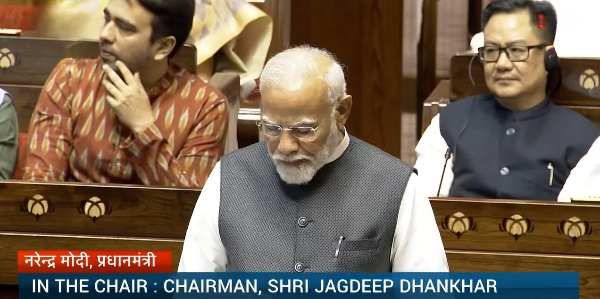Prime Minister Narendra Modi presented his freshly appointed Council of Ministers to the Rajya Sabha on Thursday, marking a crucial step in India’s parliamentary proceedings. This significant event followed a similar introduction in the Lok Sabha, which took place immediately after the election of the Speaker.
The session was notable for several key highlights and pivotal moments:
Detailed Introductions: Prime Minister Modi personally introduced each member of his cabinet to the Rajya Sabha, detailing their qualifications, professional backgrounds, and designated responsibilities within the government. This meticulous presentation aimed to provide transparency and clarity regarding the roles of each minister in driving the nation’s governance and policy agenda forward.
Cross-party Unity: The introduction garnered enthusiastic applause and bipartisan support from parliamentarians across party lines, highlighting a collective commitment to national governance and development. The session underscored the shared responsibility among lawmakers to collaborate on critical issues impacting the country’s progress and welfare.
Prominent Attendees: The event was graced by the presence of prominent leaders including J P Nadda, Leader of the House, Mallikarjun Kharge, Leader of the Opposition in the Rajya Sabha, and other senior political figures. Their participation underscored the spirit of cooperative governance and underscored the importance of inclusive decision-making processes in Parliament.
Inaugural Address: Concurrently, the commencement of the 264th session of the Rajya Sabha featured a joint address by President Droupadi Murmu, outlining the government’s legislative priorities and setting the stage for robust debates and deliberations on key national issues.
With the formal introduction of the Council of Ministers complete, the focus now shifts to the effective implementation of strategic policies and initiatives aimed at fostering economic growth, social equity, and sustainable development. The government’s proactive engagement with parliamentarians during these inaugural sessions sets a positive precedent for collaborative governance and constructive dialogue in the upcoming parliamentary sessions.
Looking ahead, the forthcoming sessions of Parliament are poised to witness rigorous discussions, strategic planning, and concerted efforts towards achieving the nation’s developmental goals and aspirations.



